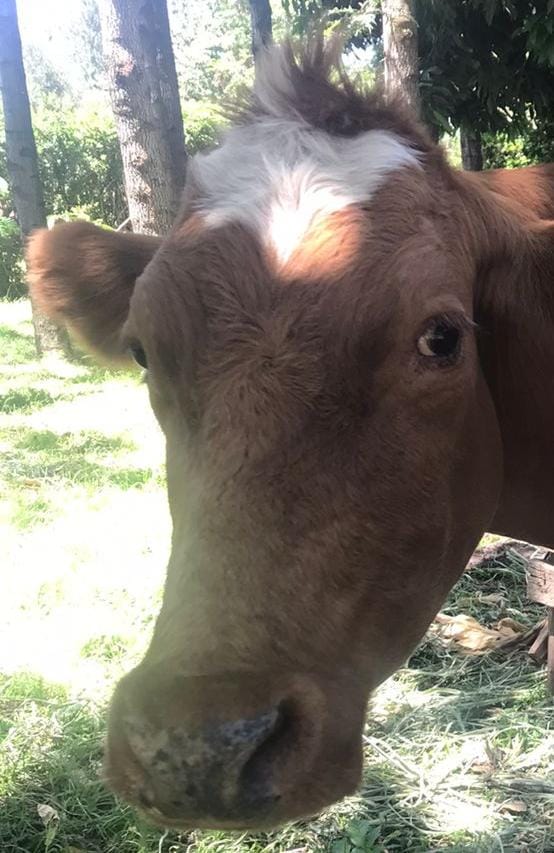While going through chats in a WhatsApp group that has medical professionals who support GMO technology, I realized that one of the most dangerous conditions that has been taking lives has a solution in a drug created through genetic modification. Those with family members suffering from type 1 diabetes and need occasional shots of insulin are thankful to whoever invented genetically modified insulin which I think is much safer replaces insulin previously produced from cows and pigs.


The thought of insulin having been extracted from pigs and cows alone can be terrifying to those who do not understand the biology behind the process. Thanks to GMO, we have reliable insulin not made from these animals. Photo Credit: Julius Kokonya.
I almost challenged the anti GMO-Kenyans to start by taking their patients off insulin if indeed they meant to push for the banning of the technology in the country. As we debate and critically look at the advantages of introducing this technology, the “GMO Facts-Not Fear” campaign is gaining ground as the team wins big not because we have the government on our side, but because “facts are stubbornly remaining factual!”
To help understand what type 1 diabetes is and its relation to synthetic insulin, we’ll look at the following rookie explanation.
What’s type 1 diabetes?
This is a genetic condition that manifests when the patient is still young. It is different from type 2 diabetes which is considered to be a lifestyle condition that develops over time and shows up later in life. In type 1 diabetes, the body’s immune system attacks and destroys the insulin-producing cells in the pancreas. In this condition, the body is said to be attacking itself by mistake for long before the symptoms appear.
An insulin deficiency patient suffers from salt and water depletion and exhibits weight loss, tiredness, vomiting, infection, and impaired consciousness which can result into coma and subsequent death. To any family, these signs and symptoms coupled with the pain and suffering of their loved ones is a real nightmare. Nobody would wish anybody such anguish.
What is insulin?
Many people might be wondering what insulin is and how it’s related to body health and general well-being. In this blog, I will use the basic and simplified explanation that non-medical readers can understand. Insulin is a naturally occurring hormone made by the pancreas in the body. Insulin helps the body to convert sugar to energy. Excess sugar in the blood is dangerous and can cause diabetes. So the pancreas needs to work normally to release enough insulin required by the body to control blood sugar and prevent developing diabetes.
How was insulin produced before?
Before the invention of genetic technology, insulin was produced from cattle and pigs! For generations insulin from cattle and pigs has been used to treat diabetes and save lots of lives. However, it can cause allergies and other reactions in many patients because a protein from animals may not be accepted by the human body’s immune system.
In 1978, the first human insulin was genetically engineered and produced for use on humans. This brought a complete turnaround in the drug, reactions from patients, and general safety. The “man made” Humulin was later licensed for use in 1982. This was a fine product that replaced the insulin the body would normally make by itself.
At this point we shall leave the nitty-gritty to the scientists and insist that GMO technology has lots of benefits to society while using insulin as an example of how the technology can be used to save lives. Right now millions of diabetics use synthetic insulin to regulate their blood sugar levels. This insulin is easier to make and produce in large quantities than the one extracted from cattle and pigs.
This insulin example is enough reason to make a whole nation think twice on whether to listen to “nay-sayers” or expedite the creation of structures that’ll promote speedy implementation of the GMO technology agenda.

